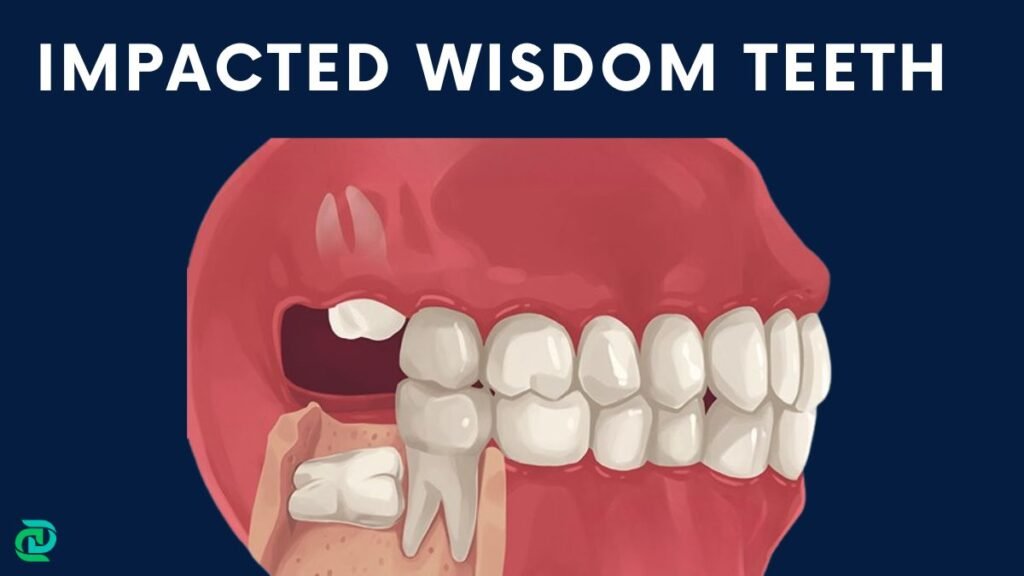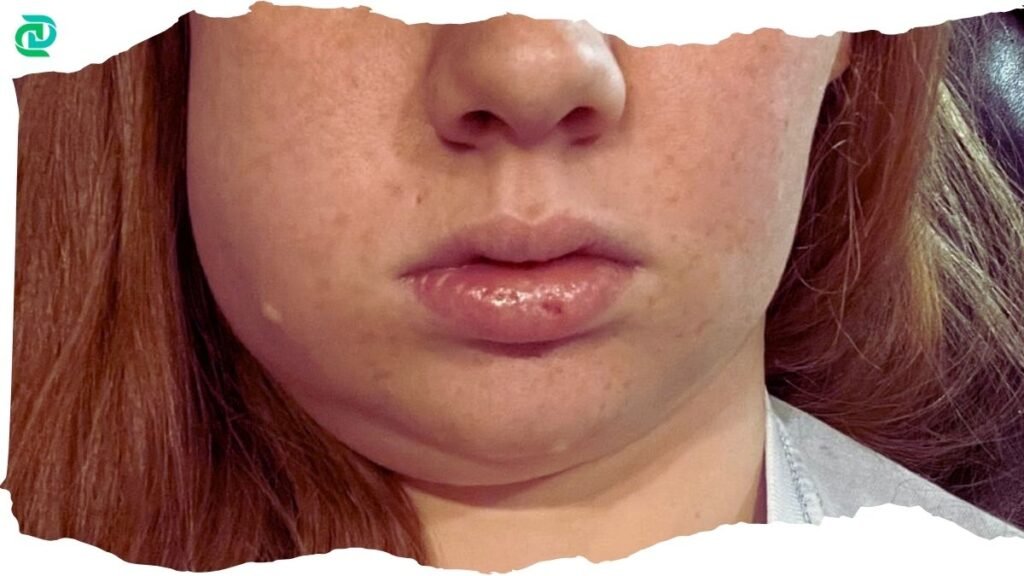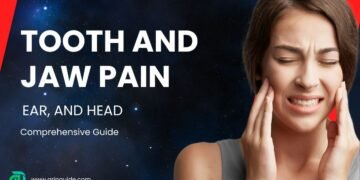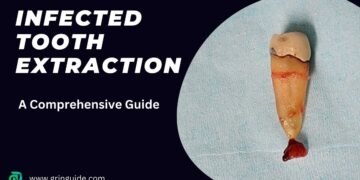Table of Contents
Introduction
Wisdom teeth, also known as third molars, are the last set of molars that typically emerge in the late teens to early twenties. While these teeth can be a valuable asset when healthy and properly aligned, they often pose significant dental challenges. Due to their position at the back of the mouth, wisdom teeth are prone to complications such as impaction, crowding, and infection. These issues can lead to pain, swelling, and even damage to adjacent teeth.
The removal of wisdom teeth is a common dental procedure aimed at addressing these potential problems before they escalate. Dental professionals often recommend wisdom teeth removal to prevent future oral health issues. The procedure is usually performed during late adolescence or early adulthood, a period when the roots of the teeth are not fully formed, making extraction easier and recovery quicker.
Common reasons for wisdom teeth removal include impaction, where the tooth fails to emerge fully or at all, leading to pain and potential infection. Additionally, wisdom teeth can cause overcrowding of the mouth, pushing other teeth out of alignment. Sometimes, these teeth also develop cysts or tumors, further necessitating their removal.
Understanding the necessity and timing of wisdom teeth removal is crucial for maintaining optimal oral health. By addressing these issues proactively, individuals can avoid more serious dental problems down the line. This guide will delve deeper into the various aspects of wisdom teeth removal, providing a comprehensive overview for those considering or preparing for this procedure.
What Are Wisdom Teeth?
Wisdom teeth, that typically emerge in late adolescence or early adulthood, usually between the ages of 17 and 25. These teeth are located at the very back of the mouth, with two on the upper jaw and two on the lower jaw. In the context of human evolution, wisdom teeth were highly functional, aiding our ancestors in grinding down plant tissue and uncooked meat, thereby contributing significantly to their diet.
In terms of their evolutionary background, wisdom teeth were essential for early humans whose diet consisted largely of raw vegetables, roots, nuts, and meats. The coarse texture of these foods caused significant wear and tear on teeth, and by the time wisdom teeth emerged, the first and second molars might have been worn down or lost. Thus, the arrival of these additional molars provided a necessary backup to maintain efficient chewing.
However, in modern humans, the role of wisdom teeth has diminished due to changes in our diet and advances in dental care. We now consume softer, cooked foods that require less masticatory force, and we maintain better oral hygiene, reducing the likelihood of losing teeth at a young age. Consequently, the necessity for wisdom teeth has decreased, transforming them into vestigial structures that often pose more problems than benefits.
Problems associated with wisdom teeth arise primarily because human jaws have become smaller over generations. As a result, there is frequently insufficient space to accommodate these additional molars. This lack of space can lead to a variety of dental issues, including impaction, misalignment, and the potential for infection or cyst formation. Consequently, wisdom teeth removal has become a common dental procedure aimed at preventing these complications and maintaining overall oral health.
Why Do Wisdom Teeth Need to Be Removed?
Wisdom teeth, while they can be beneficial for chewing, many people experience complications that necessitate their removal.
1. Overcrowding
One of the primary reasons for wisdom teeth removal is overcrowding. As these molars try to emerge, there often isn’t enough space in the jaw to accommodate them, leading to misalignment of other teeth.
This overcrowding can cause significant discomfort and can negatively impact the overall alignment of your bite.
2. impaction
Another common issue is impaction. Impacted wisdom teeth are those that do not fully emerge from the gums because they are blocked by other teeth or bone. This can lead to a host of problems, including pain, swelling, and sometimes infection.

Impacted teeth can also cause cysts or tumors to form, which can damage the jawbone and nearby teeth. Removing these teeth proactively can prevent these severe complications.
3. Infections
Infections are another significant concern. Partially erupted wisdom teeth can create pockets where bacteria can thrive, leading to gum infections and other oral health issues.
These infections can be persistent and may spread to other parts of the mouth or even the bloodstream if not addressed. Removing the wisdom teeth can eliminate this risk and promote better oral hygiene.
4. Damage to adjacent teeth
Additionally, wisdom teeth can cause damage to adjacent teeth. They may push against the second molars, leading to decay, wear, and even structural damage.
This can necessitate further dental procedures, complicating your oral health landscape. By removing wisdom teeth, you can protect the integrity of the surrounding teeth and maintain better overall dental health.
Overall, the removal of wisdom teeth can offer numerous dental health benefits, including reduced risk of infection, prevention of overcrowding, and protection of adjacent teeth.
Consulting with a dental professional can help determine whether wisdom teeth removal is the best course of action for your specific circumstances.
Common Age for Wisdom Teeth Removal
The typical age range for wisdom teeth removal falls between 17 and 25 years old. This period is considered optimal for the procedure due to several reasons rooted in dental health and developmental factors.
During these years, the roots of the wisdom teeth are not fully developed, which makes the extraction process less complicated and allows for a smoother recovery. Additionally, younger patients tend to experience fewer complications such as infection or prolonged healing times.
One of the primary reasons for recommending wisdom teeth removal within this age range is the increased risk of dental issues if the procedure is delayed. As individuals age, the roots of the wisdom teeth continue to grow and can become more firmly embedded in the jawbone. This can lead to a more complex extraction and a higher likelihood of surgical complications. Moreover, fully developed wisdom teeth often have a higher propensity to cause misalignment, crowding, and damage to adjacent teeth.
Delaying wisdom teeth removal beyond the recommended age range can also result in a greater risk of cysts or tumors forming around the impacted teeth. These conditions can severely affect the surrounding bone and teeth, leading to more extensive dental work and recovery time. Furthermore, older patients may experience a diminished healing capacity, which can complicate post-operative care and prolong the overall recovery process.
Overall, the age range of 17 to 25 years old is deemed ideal for wisdom teeth removal to mitigate potential complications and ensure a more seamless procedure. Early intervention not only simplifies the extraction process but also helps maintain optimal oral health by preventing the numerous issues associated with delayed removal.
Patients within this age bracket are encouraged to consult their dental professionals to evaluate the condition of their wisdom teeth and determine the most appropriate course of action.
Signs and Symptoms
Recognizing the signs and symptoms that may indicate the need for wisdom teeth removal is crucial for maintaining oral health. These third molars often emerge during the late teens or early twenties, and their arrival can be accompanied by various complications.
1. Pain
One of the primary indications is pain at the back of the mouth, which can range from mild discomfort to severe aching. This pain is often due to the limited space available for the wisdom teeth to properly emerge, leading to impaction.
2. Swelling
Swelling in the gums is another common symptom. This swelling can sometimes extend to the jaw, making it challenging to open the mouth fully or chew food comfortably.

In some cases, the gums around the emerging wisdom teeth can become red and inflamed, a condition known as pericoronitis. This inflammation can create a favorable environment for bacterial infection, leading to further complications.
3. Infections
Infections are a serious concern when it comes to wisdom teeth. Symptoms of infection may include persistent bad breath, an unpleasant taste in the mouth, and the formation of pus around the affected area.
If left untreated, these infections can spread to other parts of the mouth or even the bloodstream, posing significant health risks.
Pain management before wisdom teeth removal
Before wisdom teeth removal, managing pain and discomfort is essential.
- Over-the-counter pain relievers, such as ibuprofen or acetaminophen, can provide temporary relief.
- saltwater rinses can help reduce inflammation and keep the area clean.
However, these measures are typically short-term solutions, and a consultation with a dental professional is advisable to determine the necessity of extraction.
Procedure
Undergoing wisdom teeth removal is a common dental procedure that requires proper preparation and understanding. Before the surgery, it is essential to consult with your oral surgeon, who will conduct a thorough examination, including X-rays, to assess the position and condition of your wisdom teeth. This initial consultation helps in formulating the most appropriate treatment plan tailored to your needs.
On the day of the surgery, you will be administered anesthesia to ensure a pain-free experience. The type of anesthesia utilized can vary; local anesthesia numbs the immediate area around the teeth, while sedation anesthesia or general anesthesia can be used to achieve a more profound state of relaxation or unconsciousness. Your oral surgeon will recommend the best option based on the complexity of the procedure and your comfort level.
The wisdom teeth removal procedure typically involves making an incision in the gum tissue to expose the tooth and bone. The surgeon may need to remove a portion of the bone that blocks access to the tooth root.
If the tooth is impacted or difficult to extract in one piece, it may be divided into sections for easier removal. Once the tooth is extracted, the site is cleaned of any debris, and the incision is stitched. Gauze is then placed over the extraction site to control bleeding and aid in clot formation.
Full recovery from wisdom teeth removal can take a few days to a couple of weeks, depending on individual healing rates and the complexity of the extraction. Following your surgeon’s post-operative instructions diligently will aid in a swift and uneventful recovery.
Aftercare
Proper aftercare is crucial for a smooth recovery following wisdom teeth removal. Managing pain and ensuring the surgical site heals effectively should be a priority. Pain management typically involves prescribed medications such as ibuprofen or acetaminophen.
In some cases, your dentist may prescribe stronger pain relievers to manage more severe discomfort. It is essential to follow the medication schedule as instructed to minimize pain and prevent infection.
In addition to medications, several home remedies can aid in alleviating pain and swelling.
- Applying an ice pack to the affected area for 15-20 minutes can reduce swelling and numb the pain.
- Saltwater rinses are another effective remedy; mixing a teaspoon of salt in a glass of warm water and gently rinsing your mouth can help keep the area clean and reduce discomfort.
Dietary choices play a significant role in the recovery process. Soft foods such as yogurt, mashed potatoes, and smoothies are recommended immediately after surgery. Avoid foods that are hard, chewy, or acidic, as they can irritate the surgical site and potentially disrupt the healing process. Hot foods and beverages should also be avoided to prevent bleeding and further complications.
Follow-up appointments with your dentist are critical to monitor the healing process and address any potential complications. These visits allow the dentist to check for signs of infection, ensure proper healing, and remove any stitches if necessary. Ignoring follow-up appointments can lead to prolonged recovery times and an increased risk of complications such as dry sockets or infections.
In summary, diligent aftercare involving proper pain management, careful dietary choices, and regular follow-up appointments is essential for a successful recovery post-wisdom teeth removal. Adhering to these guidelines can greatly enhance the healing process and mitigate potential complications, ensuring a smooth and swift recovery.
Average Cost of Wisdom Teeth Removal
The average cost of wisdom teeth removal can vary significantly based on several factors, including the complexity of the extraction, the geographic location, and whether the procedure is performed by an oral surgeon or a general dentist. Understanding these variables can help patients better prepare for the financial aspects of this common dental procedure.
Firstly, the complexity of the wisdom teeth extraction plays a crucial role in determining the cost. Simple extractions, where the tooth is fully erupted and easily accessible, typically range from $75 to $200 per tooth. However, if the wisdom teeth are impacted, meaning they are trapped beneath the gum line or embedded in the jawbone, the cost can increase substantially. Impacted wisdom teeth removal can range from $225 to $600 per tooth, depending on the level of impaction and the difficulty of the procedure.
Geographic location is another significant factor influencing the cost of wisdom teeth removal. In urban areas with a higher cost of living, dental procedures, including wisdom teeth extraction, tend to be more expensive. Conversely, in rural or less populated regions, patients may find lower prices for the same procedures. For instance, wisdom teeth removal in a metropolitan area might cost 20-30% more than in a smaller town.
Lastly, the choice between an oral surgeon and a general dentist can affect the overall cost. Oral surgeons are specialists in surgical tooth extractions and typically charge higher fees than general dentists due to their advanced training and expertise. On average, an oral surgeon’s fee for wisdom teeth removal can be 50-100% higher than that of a general dentist. However, the complexity of the case may necessitate the expertise of an oral surgeon, ensuring a safer and more efficient procedure.
In conclusion, the average cost of wisdom teeth removal is influenced by the complexity of the extraction, geographic location, and the professional performing the procedure. By considering these factors, patients can better anticipate the financial requirements associated with this essential dental treatment.
Insurance Coverage for Wisdom Teeth Removal
Dental insurance plans often play a pivotal role in managing the costs associated with wisdom teeth removal. Typically, most dental insurance policies offer coverage for this procedure, categorizing it under “oral surgery” or “major dental services.” The extent of coverage, however, can vary significantly based on the specifics of the insurance plan and the nature of the dental work required.
For instance, many dental insurance plans cover a substantial portion of the cost for wisdom teeth removal if it is deemed medically necessary. This can include situations where the teeth are impacted, causing pain, or posing a risk of infection. In such cases, insurance may cover consultations, x-rays, anesthesia, and the actual surgical procedure. However, it is essential to note that elective or cosmetic extractions might not be covered to the same degree.
Given these variations, it is crucial for individuals to thoroughly review their insurance policies and directly contact their insurance providers to understand the terms of coverage for wisdom teeth extraction. Important aspects to clarify include the percentage of costs covered, any applicable deductibles, copayments, or coinsurance, and whether there is an annual maximum benefit cap. Additionally, some insurance plans might require pre-authorization for the procedure, necessitating prior approval to ensure coverage.
Moreover, the type of insurance plan—whether it is a Health Maintenance Organization (HMO), Preferred Provider Organization (PPO), or an indemnity plan—can influence coverage specifics. HMOs typically have lower premiums but restrict patients to a network of dentists, whereas PPOs offer greater flexibility in choosing providers but may come with higher out-of-pocket costs. Indemnity plans, on the other hand, provide the most freedom in selecting a dentist but often involve higher premiums and more significant cost-sharing.
Understanding these nuances and proactively engaging with one’s insurance provider can help mitigate unexpected expenses and ensure a smoother, more financially manageable wisdom teeth removal process.
Financial Assistance Options for Those Without Insurance
For individuals without insurance, the cost of wisdom teeth removal can be a significant financial burden. However, several financial assistance options are available to help manage these expenses. One common solution is the payment plans offered by many dental offices. These plans allow patients to spread the cost of the procedure over several months, thereby making the immediate financial impact less severe. Patients should inquire directly with their dental provider to understand the terms and conditions of such plans.
Another viable option is discount dental plans. Unlike traditional insurance, these plans offer reduced rates on dental procedures, including wisdom teeth removal, for a monthly or annual fee. Members can save a substantial percentage on their dental bills, making this an attractive option for those without insurance coverage. It is important to compare different discount dental plans to find one that best suits one’s needs and budget.
Community health programs also provide significant support for individuals needing dental care, including wisdom teeth removal. Many community health centers offer services on a sliding fee scale based on income, ensuring that low-income individuals have access to necessary dental procedures at a reduced cost. Additionally, some centers might offer free dental clinics periodically, which can be an excellent opportunity for those in need.
Non-profit organizations can also be a valuable resource. Several non-profits focus specifically on providing dental care to underserved populations. Organizations such as the Dental Lifeline Network and America’s Dentists Care Foundation offer programs that connect individuals with volunteer dental professionals who provide care at no cost or reduced cost. These programs often have specific eligibility criteria, so it is advisable to check the requirements before applying.
Understanding these financial assistance options can make wisdom teeth removal more accessible for those without insurance. By exploring payment plans, discount dental plans, community health programs, and non-profit organizations, individuals can find the support they need to manage the costs associated with this important dental procedure.
Conclusion
In conclusion, understanding the necessity of wisdom teeth removal is crucial for maintaining optimal oral health. Throughout this guide, we have explored the reasons why wisdom teeth often require extraction, including the prevention of overcrowding, impaction, and potential infection. Early detection and timely removal can mitigate complications and promote smoother recovery.
Proper aftercare is a vital component of the wisdom teeth removal process. Adhering to your oral surgeon’s post-operative instructions can significantly reduce the risk of complications such as dry socket, infection, and prolonged discomfort. This includes following guidelines on diet, oral hygiene, and activity restrictions during the healing period.
Ultimately, the decision to remove wisdom teeth should be made in consultation with a qualified dental professional. Personalized advice from your dentist or oral surgeon will take into account your unique dental anatomy and overall health. Regular dental check-ups and imaging can help monitor the development of wisdom teeth and determine the appropriate timing for their removal.
By being proactive about wisdom teeth removal and prioritizing proper aftercare, you can ensure a smoother recovery and maintain better oral health in the long term. Do not hesitate to seek professional guidance to make informed decisions about your dental care.
FAQs
-
How long does it take to recover from wisdom teeth removal?
Recovery time for wisdom teeth removal varies depending on the complexity of the extraction and the individual’s overall health. Generally, most people experience initial healing within a week, with significant reduction in swelling and discomfort within three to four days. Full recovery, including complete tissue healing, typically occurs within three to four weeks.
-
Are there any long-term effects of not removing wisdom teeth?
Failing to remove problematic wisdom teeth can lead to several long-term dental issues. Impacted wisdom teeth, which do not have enough space to emerge properly, can cause crowding and misalignment of adjacent teeth. This misalignment can result in bite problems and increased difficulty in maintaining oral hygiene. Additionally, wisdom teeth that partially erupt or remain impacted can create pockets that trap food and bacteria, increasing the risk of gum disease and tooth decay. In some cases, cysts or tumors may develop around impacted wisdom teeth, potentially causing damage to the jawbone and surrounding structures.
-
Can impacted wisdom teeth cause other dental problems?
Yes, impacted wisdom teeth can lead to various dental complications. One of the most common issues is pericoronitis, an infection of the gum tissue surrounding a partially erupted wisdom tooth.
-
What is the ideal age for wisdom teeth removal?
The optimal age for wisdom teeth removal typically ranges from late teenage years to early twenties.
-
How is pain managed during and after the procedure?
Pain management is a key concern for many undergoing wisdom teeth removal. During the procedure, local anesthesia, sedation, or general anesthesia is used to ensure a pain-free experience. Post-operative pain can be managed with prescribed painkillers, over-the-counter medications like ibuprofen, and applying ice packs to reduce swelling.
-
How can I prepare for wisdom teeth removal?
Preparation for wisdom teeth removal involves a few key steps. Patients should arrange for someone to drive them home post-surgery, as anesthesia can impair their ability to drive. It is also advisable to stock up on soft foods and follow pre-operative instructions from the dentist, such as fasting if required. Ensuring a comfortable recovery space at home and understanding post-operative care instructions can facilitate a smoother recovery process.











